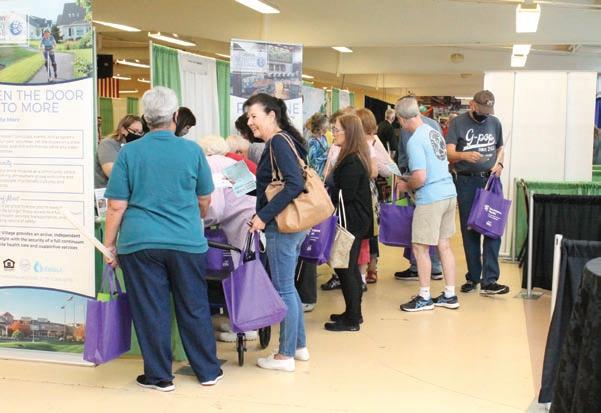
2 minute read
Land measure (Brit
By Andrea Collins
Not to be confused with an actual bird, a snowbird is a person who moves to a warmer location during the winter to avoid the cold.
Traditionally, most snowbirds have been retirees; however, younger demographics who have the ability to work remotely have also started to claim the snowbird title.
Snowbirding is about having more freedom over your lifestyle, but it also comes with extra responsibility, usually in the form of a second home, RV, or vacation rental to maintain. That’s why it’s crucial to be prepared.
1. Inspect your insurance. To be a snowbird, you have to think ahead when it comes to your insurance, specifically your homeowner’s insurance.
When insuring your primary residence, second home, or any rental properties, it’s important to be honest about which properties you use for which purposes — and what the safety and insurance concerns are for each one.
Speaking with a trusted insurance professional can help you get the proper coverage for your homes and belongings, no matter where you spend the winter.
2. Downsize your stuff. Before you take flight for the season, downsize as much as possible. Consider where you’re going, what your day-to-day lifestyle will be, and what you’re leaving behind, and then what went right — or wrong — during your past snowbird seasons.
If, for example, you overpacked last winter, you may want to make a list this season. Or if you’re renting your primary residence while you’re gone, you might want to put some of your personal items in storage.
3. Stick to a snowbird budget. Just as with a regular household budget, the key to creating a snowbird budget is to be realistic. The best budget should give you enough freedom to enjoy your winter retreat without blowing your savings. To determine your ideal budget, work backward. Start by imagining your dream environment; then research costs in the area. Think: average rentals, activity costs, transportation, groceries, and dining out.
Don’t forget to factor in your primary-residence costs as well. Even though you’re technically away from home, you’ll still have to pay your housing costs, as well as utilities, insurance, and upkeep.
Pro tip: Don’t forget travel costs. Whether it’s wear and tear on your vehicle, fuel costs, or plane tickets, travel expenses can eat into your snowbird budget. 4. Plan for proper home maintenance. As a snowbird, you have to be proactive about keeping your various residences in good condition.
If you have a residence in a warm-weather area, you may need to consider landscaping upkeep, pool maintenance, pest control, and mold checks. For



emPloyers –
Now taking “space” reservations Call today!
If YOU or someone you know is looking for employment opportunities, please visit Jobs717.com Jan. 15–31, 2022
Open to employees in transition, those actively seeking a career change, and those who may consider a change for the right opportunity.
Join Jobs717.com from the comfort of your home or office or on your mobile device.
Choose employers you want to interact with Explore each employer’s information Engage one-on-one with company representatives Upload resume and other documents immediately










